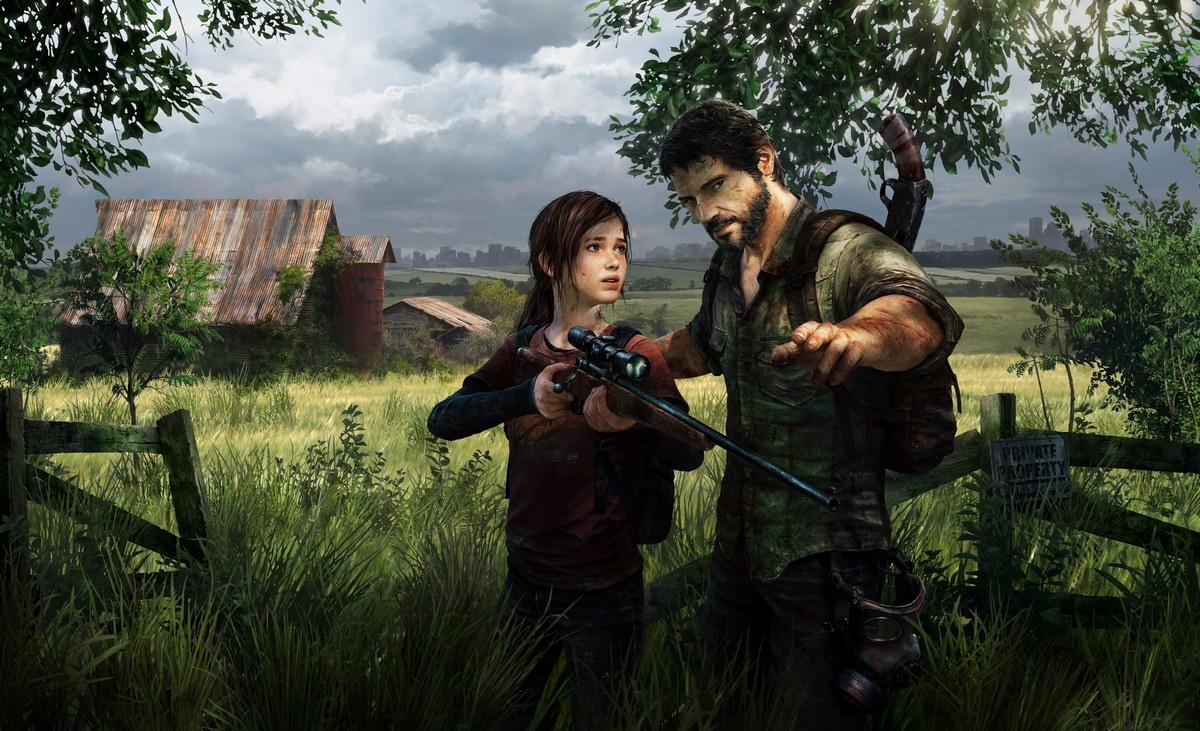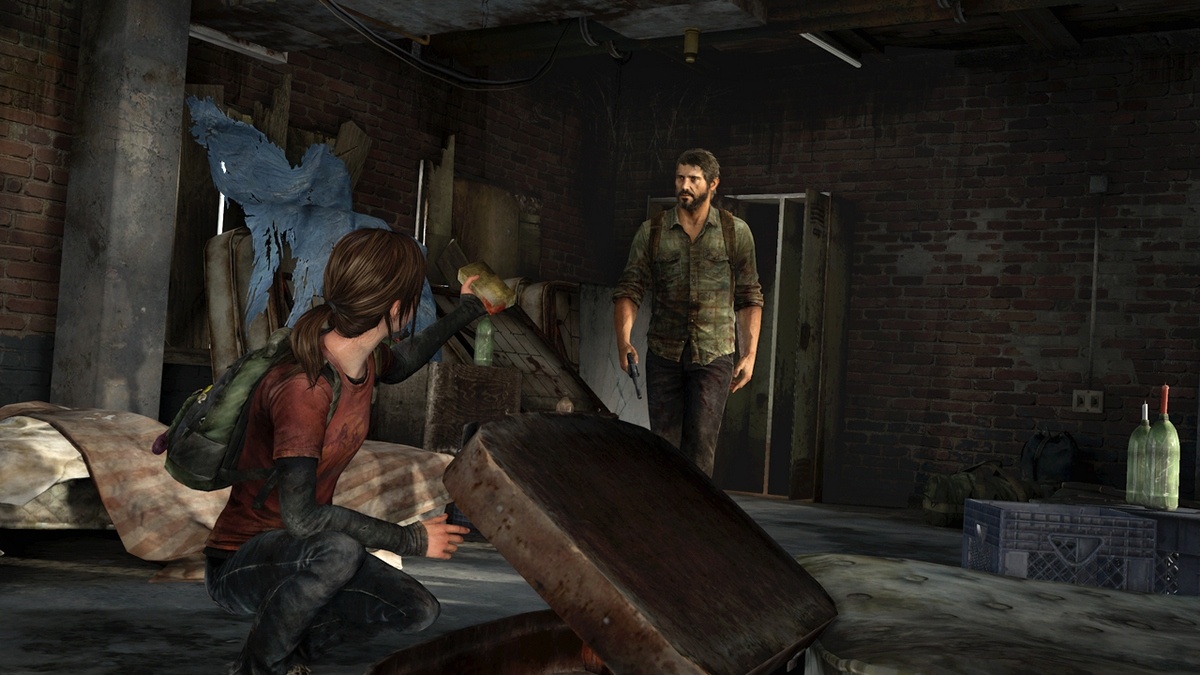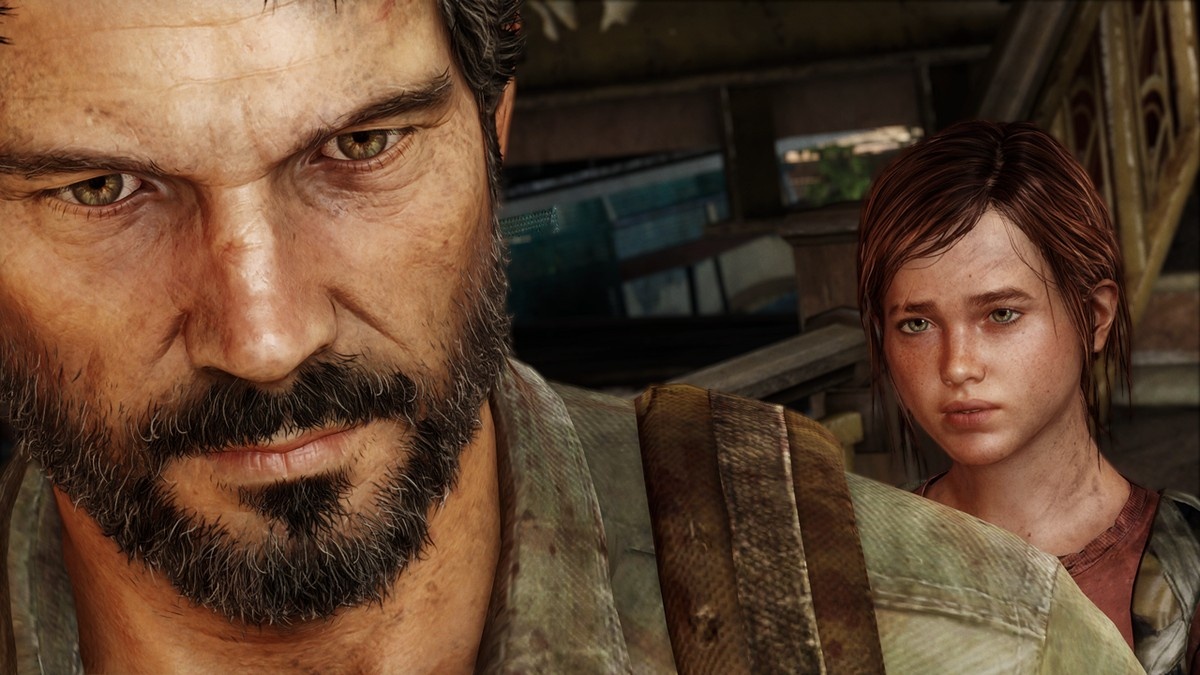The Last of Us Bucks Depressing Trends All the Way to the Bank
Why Naughty Dog's successful experiment should serve as a sign to big publishers that change is acceptable.
An anxious swirl builds in your stomach. The suffocating weight of inevitability roots you in place, tormenting your already fragile psyche. If only ignorance could save you from this burden. But there's no hope for that. The truth is out there, growing stronger as every minute passes. Shying away from reality won't change a thing. So you click on the latest sales figures, fully prepared for the bad news that they bear. A shock ripples through your body, and your eyes light up in amazement. The Last of Us sits atop the best-sellers list, standing out against the sea of soulless cash grabs, and redefining what you believe about the mainstream market. The cycle has been broken, and the masses have spoken: transformative experiences can sell.
There's a debilitating philosophy in this industry. Executives--those corporate entities who control the purse strings--believe that releasing a new series late in a console's life is akin to signing its death certificate. EA Labels president Frank Gibeau flatly argued just last year against new IPs so late in a generation. It's assumed that going against the flood of iterative sequels means failure at retail, so developers must play it safe by walking down the same, predictable path. But Naughty Dog doesn't have to play by those rules. As one of the most esteemed developers around, it has the clout and talent to rise above the noise. The Last of Us doesn't rely on characters and names that have been ingrained in the consciousness of the game-buying public. Rather, through expert craftsmanship and untested inventiveness, Naughty Dog created an adventure that demanded attention.
The cycle has been broken, and the masses have spoken: transformative experiences can sell.
Such a move should be celebrated by those starving for new experiences. Naughty Dog thumbed its nose at conventional wisdom, fully aware that there's incredible risk in crafting something unknown. By moving copies at an impressive rate, The Last of Us proved to developers and publishers alike that quality can still matter. Those who love video games want nothing more than to be immersed in the best adventures regardless of the titles that grace their covers. For those fiscally conservative men and women in suits, this should come as an eye-opening revelation. Popular franchises may sell well because name recognition creates hype, but there is always a place for excellent games, even during the final months of a console's life. Just look at the critical and commercial success Bully and God of War enjoyed last generation.
That The Last of Us is not part of an established franchise is just one aspect of why it's so important that it's selling well. Naughty Dog's take on the zombie apocalypse incorporates a feeling that has become endangered in recent years. As you cower behind overturned tables in the crumbling ruins of a suburban house, tension courses unabated through your veins. The stench of death is a constant companion. One false step can lead to your untimely end, so your ears continually strain for an imminent threat while you crouch-walk slowly through your waking nightmare. The Last of Us is maddening in all the right ways, transporting you to a horrific future in which safety may be present in the wishful fables of children, but has long since been exterminated in the outside world.
Contrast this feeling of helplessness to the other games that dot the landscape. Empowerment is a theme that has been built into the foundation of so many chart toppers. Stealth and survival horror games used to plunge you into an unrepentant world in which the slightest mistake was met with unavoidable death. But those days have long since faded away. Accessibility and inclusiveness have become dirty words because of the ways they have been implemented. No longer do games force you to inhabit the body of a character that's wildly overmatched. Rather, you're the hero, the attacker, the one who wields the power. You're the cause of death, not affected by it.
Naughty Dog's take on the zombie apocalypse incorporates a feeling that has become endangered in recent years.
By eschewing this developmental philosophy, Naughty Dog forces us to confront our own morality. Such a position is uncomfortable, but it shows that the gaming audience is more mature than we're given credit for. We don't always want to be an unstoppable killing machine sent to exterminate a swarm of brain-dead enemies. Joel wears his flaws on his tattered sleeves. He's just a weak individual desperately trying to survive against unrelenting odds. Clickers ignore your insatiable desire to live one more day, sinking their teeth into your neck as they quickly drain your life away. Strength is a laughable fantasy in The Last of Us. And because you're cast in the shoes of a severely flawed individual, you better understand one way a mere human could live in such a sickening world.
The strides that Naughty Dog has taken to separate The Last of Us from the majority of its high-profile competitors are noteworthy and a big reason why we should celebrate its commercial success. However, in many ways, it still stays close to what has come before it. Though death comes quickly and mercilessly, punishment stays out of the equation. So graphic and unsettling are the death sequences that you try desperately to avoid them, but there's no lasting penalty for failure. Furthermore, The Last of Us is just as linear as many of its peers. Neither of these elements is inherently good or bad, but it shows how even Naughty Dog is hesitant to completely turn their backs on popular conventions. We should be happy the developer did take some major risks in developing an unproven franchise in which tension is severe and constant, though. By designing the other elements to be more palatable, it ensured that those weaned on the many facile offerings out there could still enjoy this endeavor.
Although Naughty Dog's forays into uncharted waters are commonplace for an independent developer, The Last of Us stands out from other big-budget games in important ways. It should be noted that it probably would not have achieved such high sales if it lacked its extensive marketing push, but its media presence was no more than that of comparable experiences. Of all the reasons we should be ecstatic that it sold so well, there's nothing more important than its high mark of quality. Many amazing games go ignored by the average player, so it's heartwarming to know that something truly great can still get noticed. Kudos to Naughty Dog for a triumphant achievement. We can only hope that other AAA developers and publishers take notice of its success. There is more than one way to make your game popular, and The Last of Us proves that our tastes are more refined than many expected.
'Got a news tip or want to contact us directly? Email news@gamespot.com



Join the conversation